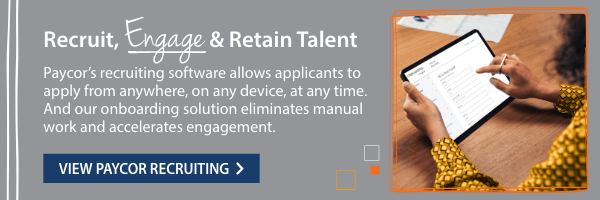Motivated employees drive business success. But what can HR do to keep them engaged? Of course, you should start with competitive salaries and benefits. But that’s just the beginning. You’ll have to go above and beyond to earn your team’s long-term loyalty.
The bottom line is, money isn’t the only thing employees care about. By offering non-monetary incentives, you can inspire your team to do even better work.
The Benefits of Non-Financial Rewards for Employees
Non-financial incentives show your team that you value them as people, not just employees. This personalized investment fosters their emotional connections to your company – and that translates into long-term loyalty. Of course, this strategy only works if you’re already paying market salaries. (Here’s a hint: use pay benchmarking tools to update your compensation strategy on a regular basis.)
What’s more, non-monetary rewards allow you to showcase your company’s values. A wellness company, for instance, could incentivize employees with spa days or gym memberships. Tech firms can offer cool gadgets. The possibilities are endless. This is a fun and valuable opportunity to strengthen your company culture.
Ultimately, thoughtful non-cash incentives invite employees to connect with your company. When people feel genuinely cared for, they’re more motivated to go the extra mile. That drives innovation, retention, productivity, and more.
Top 10 Non-Financial Incentives to Motivate Employees
- More Flexibility
Flexibility is the #1 non-monetary incentive employees want (PR Newswire). In some industries, that means working remotely. Others, like healthcare or manufacturing, depend on in-person labor. But HR can still help! Many employees are happy to come in to work but want more control over their schedules.
- Public Recognition
Just acknowledging an employee’s great work can go a long way. Mention them in an all-hands meeting, send a company-wide email congratulating them, or name them “employee of the month.” Recognition could come from business leaders, their direct supervisor, or even a peer at the company.
- Training Opportunities
Upskilling your team is a win-win. They’ll feel supported and understand you’re investing in their careers. At the same time, your company will benefit from their new knowledge. Consider sending employees to conferences, investing in a learning management system, or offering annual training stipends.
- Mentorship Programs
Encourage junior employees to learn from senior leaders. For example, the prize for great work could be lunch with the CEO, or a seat in a leadership class. These incentives cost nothing, and they can cement a new hire’s loyalty. And if those employees are already rising stars, this is a great way to retain institutional knowledge.
- Exciting, Challenging Assignments
No one wants to be perpetually bored at work. If an employee always exceeds expectations, they might be ready for more stimulating assignments. Keep them engaged by offering stretch opportunities outside their normal roles. Just make sure you get their buy-in first – this should feel like a fun learning experience, not a demoralizing pile of extra work.
- Dedicated Time for Innovation
Remember Google’s 20% time? In case you don’t, here’s the idea: employees spend 20% of their time working on personal projects. It might sound unproductive, but that couldn’t be further from the truth. (Google Maps and Gmail both started as 20% time projects.) Encourage your high performers to set aside time to think, experiment, and just play around with new ideas. You never know what could come out of it.
- Paid Volunteer Time
In one survey, 76% of employees said they’d like to work for “a company that is trying to have a positive impact” (Forbes). Want to work toward that goal without adding to HR’s administrative burden? Give employees paid time off to volunteer at an organization of their choice. You could also invite top talent to suggest non-profits for your company to sponsor.
- Sabbaticals
Over 50% of employees have felt burned out at work in the past year (NAMI). Just going by the numbers, that probably includes some of your most productive employees. Sabbaticals might mean a temporary dip in productivity, but they also improve long-term employee loyalty. Why not offer this perk before they consider leaving your team?
- Experiential Rewards
Fun experiences can be extremely motivating. Depending on your budget, this could mean anything from concert tickets to a stay at a five-star resort. These incentives could reward measurable success (like the top performance from your Sales team), or you could allow managers to give them out at their discretion.
- Team Celebrations
These non-monetary incentives don’t just reward your employees for a job well done; they also build team spirit! When people go out and have fun together, they have good memories to fall back on when they face future challenges. Whether you’re taking your team out for pizza or hosting a week-long, company-wide retreat, fun activities are hugely important for company culture.

Keep Top Talent
Need more ideas? Check our our on-demand webinar: Connecting Culture and Retention: Strategies for Keeping Top Talent
How Paycor Helps Motivate Employees
Our talent development software empowers leaders to connect with employees. Use performance review tools to share feedback in a psychologically safe environment, track your team’s progress, and survey the whole company to find out what motivates them. Employees can also use online tools to publicly recognize each other for exceptional work.










